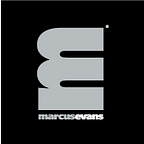VAT in the GCC.
How are businesses going to be affected?
Throughout the GCC, countries are wondering how the introduction of VAT on their goods and services is going to affect the wider Middle East financial landscape. To address these uncertainties, Marcus Evans Webinars partnered with renowned business consulting firm BearingPoint, to discuss its introduction over two webinars whilst the VAT system is still at an early stage.
The first webinar, held on September 27th, introduced BearingPoint’s EasyTax for VAT solution and outlined why the software should be a staple in large businesses, before finishing with an in-depth audience Q&A.
Due to the large number of attendees and appetite for clarity on the implications of VAT, there were a number of questions that remained unanswered. As a result, Marcus Evans Webinars teamed up with BearingPoint and BDO on December 19th to host a second webinar that directly addressed all of those questions.
Joining us for this second webinar, we were privileged to have Marcel Weber from BearingPoint join us to discuss the software service, as well as Ronald Frey, an EasyTax partner, to answer a number of questions posed by our audience of tax professionals. In addition, this webinar delivered further value through the participation of an additional two field experts from BDO, Tax Director, Rami Alhadrhami and VAT Partner, Brian Conn to answer listener questions.
For countries with very little history of taxation, EasyTax, BearingPoint’s all-in-one determination, calculation and reporting service, could prove to be a must have for businesses. Indicative of long, arduous and complicated work, VAT regulations consume considerable time and man power.
In a line of work where detail is of upmost importance, the application of a Big 4-backed rule set can ensure that regularity risks are reduced significantly. Furthermore, by automating VAT, Straight Through Processing (STP) can be reduced, thereby creating transparent and efficient VAT reports.
The EasyTax software is easily kept up to date with regulatory changes by working with Big 4 advisors local to the country in question. This is an integral part of the software offering in what is a constantly changing environment, a volatility which is accentuated by the fact it is in its early stages. In addition, a 24/7 help service limits problem solving time for end users.
For more information on the functions of EasyTax, be sure to download our webinar on EasyTax November 2nd 2016.
The questions posed by the listeners on both webinars almost exclusively revolved around the impact that the VAT rulings might have on various industries. Ronald Frey answered questions on Security, whilst the safety of the EasyTax software was a hot topic on which Frey was able to enlighten on how little information the software required, thereby optimizing privacy. Details were also shared on the importance of Invoices, as every transaction must be including invoices and regulations are also apparent in terms of how invoice formats.
A few questions were asked regarding free tax zones, a particularly hot topic in the UAE, where some ‘gated’ areas have been created. While these are limited in number, they will be considered ‘outside states’ when it comes to importation, therefore making them tax free.
Whilst all sectors will be affected, economic growth is something that is unlikely to change too much as a result of the VAT. Public spending is likely to rise, due to greater availability of funds and Weber believed this would vary by state depending on their saving patterns. These changes could see changes in demand, for example companies that supply goods to the public sector should see a rise in demand.
Alhadrhami from BDO, understands that changes in health care would also vary by country, with Saudi patients likely to experience increases in hospital bills, however this would not impact the UAE where health care is zero rated, as is medical equipment. Also, banking and brokerage firms have been declared exempt from VAT by both Saudi Arabia and the UAE. The understanding here being that if the service is a margin based, variable fee, then they are exempt; however if there is a distinct fee, then the 5% VAT is applicable. Life insurance has also been labelled as VAT free.
The introduction of VAT will affect all companies, meaning that they will need to become VAT registered. While in the UAE many companies were automatically registered, this is not the case in Saudi, where if registration deadlines are missed there will be penalty charges.
VAT registration deadlines in both the UAE and Saudi have passed, but the implementation is still in its early stages. Companies are only just beginning to acclimatize and still have a large amount to learn. Therefore, the teachings and information found in these webinars remain very useful and educational in helping companies get to grips with the changes.
For a more detailed outlook on EasyTax for VAT, as well as an array of Q&As, be sure to download both of our webinars to get a greater understanding of the value of EasyTax VAT and an insight into BearingPoint’s views of how VAT is going to impact the GCC.
James Baker
Digital Content Coordinator
Marcus Evans
101 Finsbury Pavement,
London, EC2A 1RS
